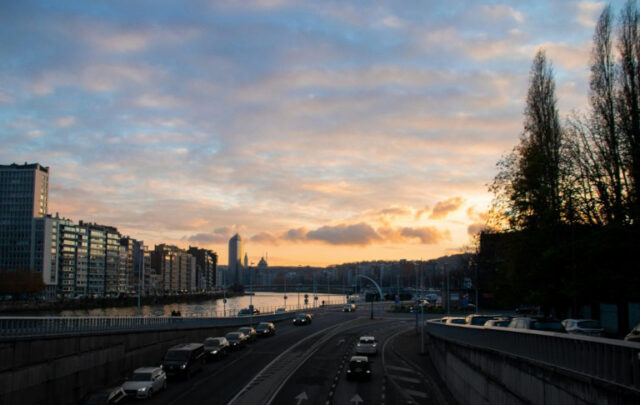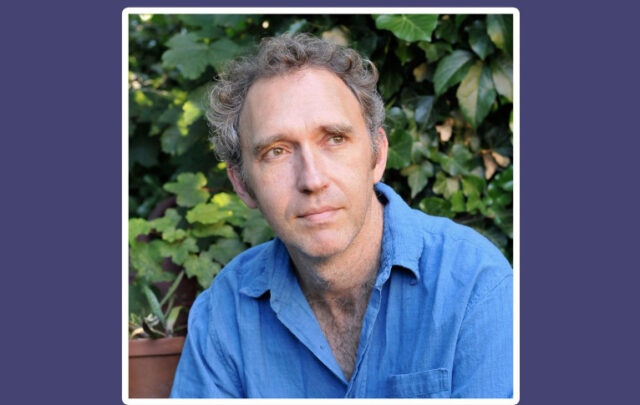[Contribution to the Reimagining Society Project hosted by ZCommunications]
I’ve been teaching and engaging in activism on issues of feminism, ecology, food, and agriculture for well over twenty years. Once in a while, I run into a face I recognize from the ‘old days’. People hailing from the 70s to the 90s—times when there were feisty, in-your-face kind of grassroots activists working toward lofty goals, like ending patriarchy or stopping nuclear power. Sometimes folks ask me what I’m doing.
“I’m still teaching and writing about ecology and revolution, taking action when I can,” I’ll say, always slightly surprised to hear the words plop from my mouth like a series of plum stones. “You’re still at it?” My interlocutor will ask, their voice a cocktail of sympathy and disbelief.
Truthfully, the disbelief is mine. I find it hard to comprehend how folks in their middle years can drop the proverbial revolutionary ball. “How do you stay inspired or optimistic?” my young students ask each year, amazed to see a relic like me still maundering on about the wonders of a potentially utopian, ecological, and directly democratic society.
And then I tell them: I had good teachers.
When I was twenty, I stumbled into the Institute for Social Ecology, a very small pond where a few big green fish swam within its humble perimeters. There, I met life time activists such as Murray and Bea Bookchin, Dave Dellinger, and Grace Paley, to name but a few of the zestiest. While Dellinger and Paley were mainly known as anti-militarist activists, Bookchin was involved in the ecology movement since its inception in the 1960s.
While living modestly, these peoples’ lives were filled with sumptuous dreams they worked to transform into reality. While they certainly suffered from bouts of frustration and dismay over the years, none of these greats surrendered to what we call today ‘political burn-out’—or worse, just plain jadedness.
“How do you do it?” I used to hear myself ask my own teacher, Murray Bookchin, who taught and inspired me during my formative years. “How do you stay so furiously engaged?” I’d ask Murray, whose eyes refracted the light of the fires raging during the Parisian Sections—a righteous historical struggle where everyday people fought for the right to live in a decentralized directly democratic society.
The fact that they lost was immaterial. The fact that they imagined such a world and fought for it: now that was something.
“How do I do it?” Murray would ask, roosting deep into an old over-stuffed chair in Bea Bookchin’s living room where Murray used to lead study groups on social ecology during the 1980s. “Once you’ve tasted the flavor of freedom on your tongue, how can you not yearn for another taste?” Murray said, chuckling.
Even back then, I knew it wasn’t that simple. As I matured a bit, I learned that this level of commitment had to do with the ‘motor’ if you will, that drives the political theory and activism of the ‘long-time doers’.
“It’s about ethical versus instrumental reason,” Murray said to me, so many times over the years. This discussion buoyed me up as I tried to cultivate my own revolutionary focus and morale. “If you are driven by instrumental reason alone,” Murray said, “you will be guided by logic of efficiency and pragmatism. You will be forever running toward the lesser-of-two evils rather than pursuing our own dreams. If you are driven instead by ethical reason, then you will be guided by logic of what ought to be, what is just and humanistic—as well as simply ‘doable’.
During my life, I have noticed that environmental activists remain active only when driven by ethical reason. The long-rangers have a gleaming golden carrot of justice dangling before them. This carrot is palpable and irresistible; they cannot ignore it as they go about their lives.
However, if they yield to logic of instrumentalism—pervasive in an age of bureaucracy and neo-liberalism—then our eyes will be locked forever on the grim and dank ‘bottom line’, calculating the ‘feasibility’ or ‘productivity’ of our efforts.
If environmental activists evaluate their work in terms of immediate efficacy and pragmatic ‘do-ableness’, they often collapse after five to ten years (sometimes far less) under the weight of abject disappointment. They resent themselves, their movements, and the world, for not changing fast enough.
The old timers I used to know—the kind of person I pray to become—were driven by ethical reason. They believed that what is utopian is just as real as the world in which we live. To be a little fancy, I’ll refer to Hegel’s truism about the worlds of the real and the actual. For Hegel, the actual world is the world now, as it is. It represents all of the ‘actualities’ that swirl around us like the dizzying rings of Saturn. The world of the real, on the other hand, is one sculpted by justice and ethics. The idea of small-scaled, confederated, ecological, and directly democratic societies is a reality worth fighting for.
It’s real to me.
Murray Bookchin was the kind of visionary who saw the ‘shining city’ of freedom. He had the rare ability to imagine the impossible dream of freedom and to articulate this dream in a clear and passionate manner. Murray’s shining city—the one that became mine as well—stands just at the glittering edge of a pink silvery sunrise. Sometimes I see its phosphorescence in a puddle of moonlight right beneath my feet on an otherwise rainy and dismal night.
Idealism, utopianism—grounded in a well articulated (and experimentally-oriented) theory, drive me to keep walking toward the shining city—the city, town, or village in which each person and living creature has the ability to fulfill their potential for greatness—whatever that potential may be.
In his last weeks of life, Murray lay in bed, composing short pieces, hoping his strength would kick in again and he could return to a life’s work that did not end until he drew his last breath. His revolutionary vision—one anchored in knowledge of revolutionary history, philosophy, and a love of humanity—kept him not only alive, but completely passionately engaged for eighty-five years. Had he lived to be one hundred, it would have lasted just that much longer.
I pray each day to do right by my mentor—to do right by all of the life-long revolutionaries who kept their eyes on the shining city, even when it was clouded by moments of self-doubt, discouragement, and fear.
Before I do yoga each day, I light three candles. One candle is for expansiveness, reminding me to reach toward the challenges the world presents each day. The second candle stands for acceptance, beseeching me to accept what cannot be changed while also accepting the responsibility to mend whatever I can. The third candle is for gratitude. Gratitude is an eternal oil, burning ceaselessly in the activist’s lantern without ever drying into an oily dark crown of emptiness.
At the end of my yoga practice, I kneel before these candles, erasing each flame with my breath. I thank my teachers, living and gone, for handing down their precious mantles of wisdom, strength, and compassion. I then rise again to my feet, striding out of my temporary sanctuary. I saunter back into the world to give it another glorious try.





